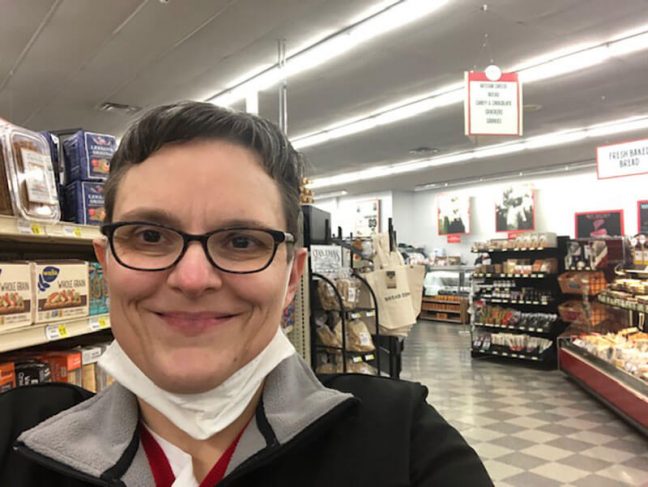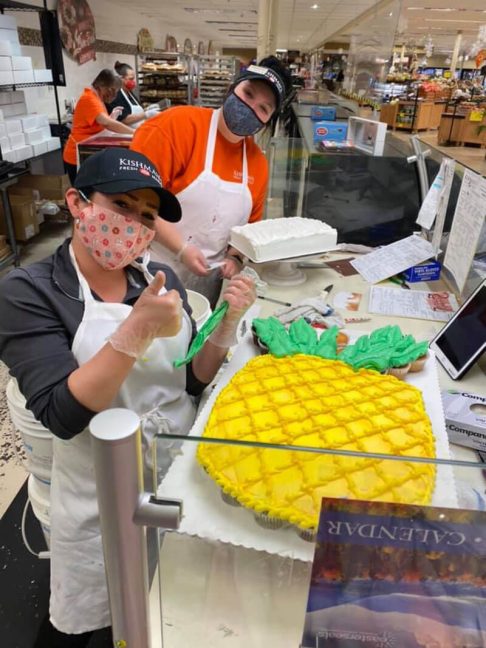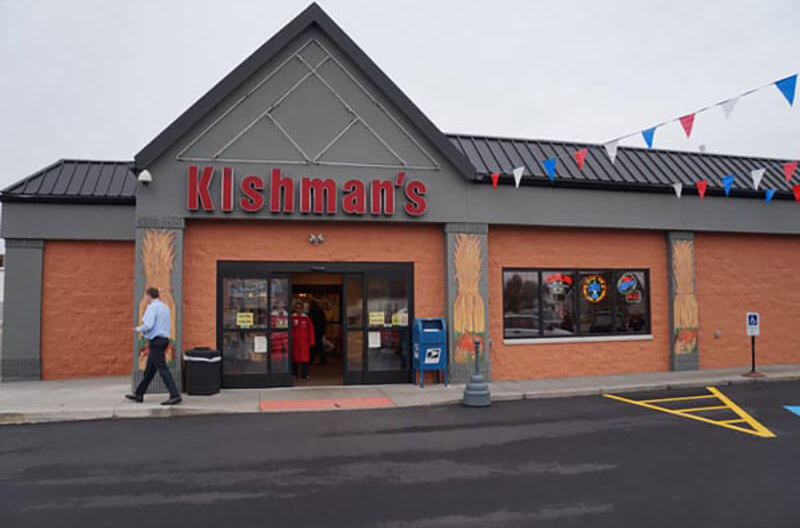Online ordering, safety likely to stay; samples, salad bars out
by Eric Pereira/ staff writer
While customers have found convenience and other advantages in online ordering, so too did Ohio independent grocers, especially during the frantic peaks of the COVID-19 pandemic.

Jennifer Williams, owner of Weiland’s Market in Columbus, Ohio, praised her store’s partnership with Instacart.
“There would have been absolutely no way we could have accommodated shopping for customers, either for pickup or delivery,” she said. “We would also have not had time to set up an online ordering platform and taking orders by email or phone would have been too difficult given the store volume,” she said.
Williams said Instacart orders were minimal pre-pandemic but then increased “dramatically.” Since business has begun returning to a normal pace, Weiland’s is turning its attention to improvements in the online shopping experience.
Matt Kishman, store manager of Kishman’s Market in Minerva, Ohio, predicts all independent grocers will explore online shopping.
“Dollar stores are starting to offer curbside…if independents want to keep up, they will eventually have to offer some kind of online shopping,” he said.
Kishman mentioned his store has had to hire more “pickers” to help with online ordering. He also predicts the sanitizing of carts will continue, as will voluntary mask wearing by customers.
“Before the pandemic, maybe half of customers would wipe cart handles down, now it’s the first thing they look for when they come into the store,” he said.
Williams added that food safety and sanitizing likely will “become even more important, as well as the optics of cleaning and sanitizing frequently touched surfaces.”
 Turning to the supply chain, Kishman said his store has had some interesting issues.
Turning to the supply chain, Kishman said his store has had some interesting issues.
“Right now, there is a shortage on canning jars and lids,” he said. “More people are canning and learning to make breads to stock up. For a while last year, we had issues getting in yeast and flour. Some of our small craft breweries we carry are having issues getting in cans and have to switch to glass bottles.”
Williams also mentioned some supply chain hinderances, though “mostly because lower-volume items stopped being manufactured in the interest of category management.” However, she said those were minor when compared to last year’s meat and poultry limitations.
For Weiland’s Market, Williams does not see self-serve samples in produce or grocery returning unless they’re pre-packaged with a secure lid. This includes placing free popcorn and coffee on hold “indefinitely.”
Williams always thought self-service samples and open salad bars had potential for passing germs and contaminants around. “We got rid of our small self-serve salad bar years ago after I saw a child lick a hard-boiled egg and put it back,” she added.
Perishables will need to be continuously monitored as Williams predicts customers will continue to do more cooking at home, even with restaurants reopening. Packaged catered items will need to be taken into account as well.
“I’m just proud of how they handled to work through adversity,” Kishman said of his employees. “I mean like everyone else, we had record sales, people lined up to come in before we even opened, and putting up with the anti-maskers. Nobody expected something like this would happen and our employees did a fabulous job working under pressure.”
Kishman said he provided multiple bonuses to workers and every Saturday they would have a local restaurant cater lunch for them.
Williams said they had cut their store hours by an hour at open and closing times as the pace of business was intense in several ways.
“We have a great team, and the pandemic proved it out,” she said. “We all helped each other; we took turns supporting each other – when someone would be down, another person would step in and help them with humor, just listening, etc. And then the situation would switch. We all had our good days and our bad days. We kept telling the team to take care of themselves, mentally and physically.”

